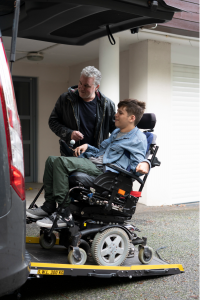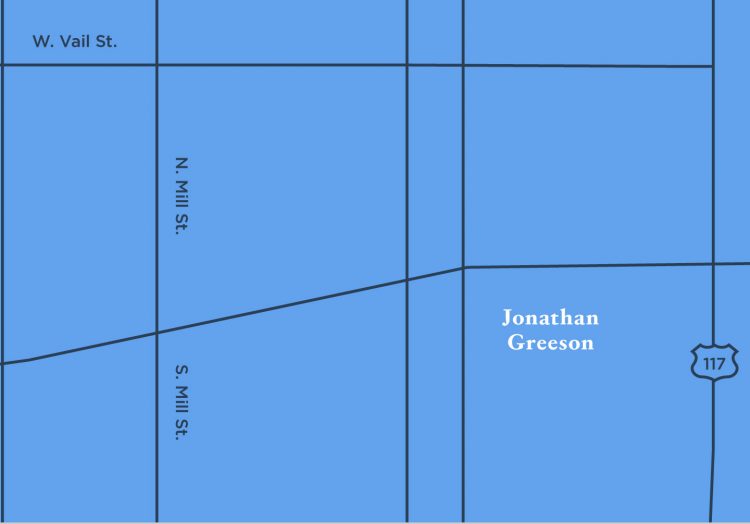I have never used TikTok, so I don’t understand the point of TikTok Challenges. However, I do see them on the news. Who decides which act of craziness becomes worthy of being a TikTok Challenge?
It reminds me of fashion trends with back-to-school clothes. Who decides what brand will be the “it” style this year? How did our fashion trends occur before the internet?
Thanks to social media, celebrities can wear your brand, creating a new fashion trend, while discussing the great tragedies in life. Note the sarcasm. We all worry so much about how those celebrities recover from a bad haircut.
When I was a child, my family and I were actively involved in 4-H.
We participated in many summer day camps. My sisters and I even taught some of the workshops as we became older.
One workshop I remember was about inclusion. Diversity, Equity, and Inclusion (DEI) has become a political hot button, but we have been teaching about respecting others in my little corner of the world for at least 30 years. Our workshop wasn’t about religion, race, gender, sexual orientation, or political preference.
 We focused on disabilities. Of course, we let children drive wheelchairs, but my personal favorite activity involved putting socks on the participants’ hands. Then we asked them to open jars, use feeding utensils, and write on paper. I hope this activity encouraged the children to help their classmates with disabilities.
We focused on disabilities. Of course, we let children drive wheelchairs, but my personal favorite activity involved putting socks on the participants’ hands. Then we asked them to open jars, use feeding utensils, and write on paper. I hope this activity encouraged the children to help their classmates with disabilities.
School can be hard for someone with a disability. However, it was a great experience for me because my classmates were helpful. Honestly, I became a financial planner because I wanted to repay their kindness by helping them prepare for their future.
Activities, like 4-H camps, are great for teaching children about the challenges faced by people with disabilities. However, I think the “disability challenge” has another way to help all people.
I believe the efficiency in which people with disabilities live their lives can help all people with their financial health.
We all know mental health is a huge issue in our world today. Many people, including myself, take medicine for anxiety and depression. There is nothing wrong with getting help when you need it. Medicine, like my wheelchair, is a tool we use to improve our quality of life.
I think many of our financial challenges occur when we try to ignore our problems. We use money to create distractions instead of facing the issues. Distractions can include constant busyness, the need to be entertained, or retail therapy.
Have you ever noticed how characters on television leave during conflict? After an argument, one character leaves the scene to “cool off” at a local bar. Then they return home, apologize, and the couple is happy until next week.
Could these shows influence our behavior in real life?
As you can imagine, the costs of these actions can really add up. Let’s estimate the costs while working through a real-life situation.
First, you’ll need to drive to the bar or restaurant if you live in a rural community like me. Let’s assume that we’ll use two gallons of gas (one gallon each way) at $3.00 per gallon. We won’t include parking and other fees in this example, but we should be aware of additional, unexpected expenses.
Next, we’ll focus on the bar or restaurant. We know food and drinks are expensive whether you consume it in a restaurant or cook it at home. However, assigning estimated prices helps us understand our example.
cook it at home. However, assigning estimated prices helps us understand our example.
Nachos are a popular appetizer while sitting at a bar, so let’s say they cost $12.00. College football is starting, so your favorite bar is running a special of bottled beer for $3.00 each. You drink one beer per quarter, so that’s another $12.00. Your team wins, so you celebrate with a $6.00 dessert. Remember to tip your server!
This example was an enjoyable experience, so it’s worth the $36.00 plus tip. After all, we are supposed to enjoy life. I tell clients my job is to help them find the balance between enjoying today and preparing for tomorrow.
The problem occurs when we use these experiences to avoid the stress of daily life.
If you spent $40.00 each time you disagreed with your spouse it wouldn’t take long before these “cooling off” periods have an impact on your financial plan. Spending money like this can add more tension to your marriage as well.
What’s the difference when a person with a disability faces the same situation? Of course, everyone is different, but for me, there is no way I could spontaneously leave home. I cannot drive, so transportation needs to be arranged.
I would also need assistance in the restaurant with my food and drink. Wheelchairs can now come equipped with a lift feature, allowing us to sit at a bar and watch a game. This technological advance is FINALLY covered by most insurance plans by the way.
Unfortunately, access to the bar is where the similarities end in our hypothetical situation. Muscular Dystrophy is consistently inconsistent. Even if the logistics worked out, so I could get to the restaurant, there is no guarantee the I would have the energy or feel good enough to go anywhere.
I, along with other people with disabilities, have to be creative with how we deal with the frustrations of daily life. We cannot just leave and that is my point.
If you can find a way to cool off or relieve stress while at home, then you may be able to save some money.
So, in the spirit of the silly TikTok challenges, I challenge you to try to deal with some of your stressful moments as a person with a disability would. No, you cannot solve every issue this way and you should definitely take baby steps into any new stress treatment exercise. However, I do believe this challenge can save you money.
 We already spend most of the money we make each month. Having limited income is stressful enough. Using money to avoid our issues can be a slippery slope.
We already spend most of the money we make each month. Having limited income is stressful enough. Using money to avoid our issues can be a slippery slope.
I’m not married, but I think spending $40.00 each time you become angry with your spouse will not go over well. You do have to go back home, right? If you have 10 arguments in a year, you’re looking at spending $400.00.
Considering 10 days is only 2.7% of a year, it’s a pretty safe bet that you will face these spending opportunities. Remember, these expenses are IN ADDITION TO your already tight budget.
Stress is a natural part of life, so it helps to plan for it.
Athletes start hydrating weeks before the game is played in order to fight dehydration. Waiting to drink when you’re thirsty doesn’t work, so I think stress can be managed in the same way.
Here are five tips for how I manage stress at home. Again, I do take medicine in addition to these exercises, so don’t take this as a cure all and please get help if you need it. I am just hoping to save you a little money.
First, my Faith helps me manage stress. Signing up to have a daily devotional emailed to you is great. I use Our Daily Bread, which is free. This shouldn’t replace your daily Bible reading though.
Second, laughter is the best medicine. I try to watch some cartoons every day. I have to pay a lot of attention to the news for work and it can be depressing. Watching old reruns of Yogi Bear, the Flintstones, and the Jetsons is a nice break.
Third, I read a lot. A good book can take me anywhere. Much of the historical sites from the American Revolution are not really wheelchair accessible, but I have experienced the lives of George Washington and Benjamin Franklin through books.
Fourth, play a video game. I no longer do this as often, but it is a great way for you to be distracted from your issues for a little while. Please don’t play something that charges fees; we’re trying to save money here!
Last but not least, watch television with a teddy bear. That was a new discovery for me. Don’t laugh because it helps. I’ve always collected various toys, action figures, and stuffed animals.
always collected various toys, action figures, and stuffed animals.
One day when I was particularly stressed, I wished I could just hold a stuffed animal like when I was a kid. Then I realized there was no rule saying I couldn’t. I picked one out on amazon, and watching television with my bear has become a nightly habit.
For 30 minutes I put down the phone and relax with my bear. When people quit smoking, they often need something to do with their hands. Similarly, holding my bear forces me to deal with my phone addiction because I have to put the phone down.
I try to think of everything when it comes to financial planning. My goal is to maximize your resources and your time. Stress is the enemy of both. Email me!


